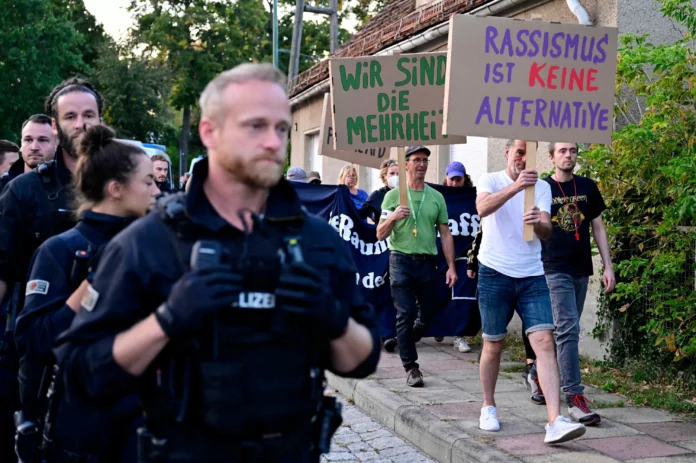Millions of Turks and Other Foreign Nationals in Germany Fear the Rise of Far-Right Party
Germany has long been known for its welcoming attitude towards immigrants and refugees, with a history of providing a safe haven for those seeking a better life. However, recent political developments have caused concern among the millions of Turks and other foreign nationals living in the country. The rise of the far-right Alternative for Germany (AfD) party in some states has sparked fear and uncertainty among these communities.
The AfD, founded in 2013, has gained significant support in recent years, particularly in the eastern states of Germany. The party’s anti-immigrant and anti-Islam rhetoric has struck a chord with some voters, leading to their success in state elections. This has caused alarm among the Turkish and other foreign communities, who fear the consequences of the party’s policies if they were to gain more power.
For many Turks, who make up the largest immigrant group in Germany, the rise of the AfD is a cause for concern. They have been an integral part of German society for decades, contributing to the country’s economy and culture. However, the AfD’s stance on immigration and multiculturalism has left many feeling unwelcome and marginalized.
The party’s leader, Alexander Gauland, has been vocal in his criticism of Turkish and Muslim communities, stating that they do not belong in Germany. This rhetoric has caused fear and anxiety among these communities, who worry about their future in the country they call home.
The AfD’s rise has also sparked concerns among other foreign nationals living in Germany. Many have expressed their worries about the party’s policies and the impact they could have on their lives. Some fear that their rights and freedoms could be at risk if the AfD were to gain more influence in the government.
The recent state elections in Saxony and Brandenburg, where the AfD gained significant support, have only added to these fears. The party’s success in these states has emboldened them, and they are now setting their sights on the upcoming federal elections in 2021.
The Turkish and other foreign communities in Germany are not taking this threat lightly. They have been actively speaking out against the AfD’s policies and calling for unity and tolerance. Many have also been actively engaging in the political process, encouraging their fellow community members to vote and make their voices heard.
The Turkish community, in particular, has been working to dispel the negative stereotypes and misinformation spread by the AfD. They have been showcasing their contributions to German society and highlighting the positive impact they have had on the country’s economy and culture.
Despite the fear and uncertainty, there is also a sense of hope and determination among these communities. They believe in the strength of diversity and the values of tolerance and acceptance that Germany has long stood for. They are confident that the majority of Germans will not support the AfD’s divisive and discriminatory policies.
The German government has also taken steps to address the rise of the far-right. Chancellor Angela Merkel has condemned the AfD’s rhetoric and policies, stating that they go against the values of the country. The government has also implemented measures to combat hate speech and discrimination, and to promote integration and diversity.
In addition, civil society organizations and grassroots movements have been actively working to counter the AfD’s influence. They have been organizing events and campaigns to promote unity and diversity, and to educate the public about the dangers of far-right ideologies.
The rise of the AfD in Germany is a cause for concern, not only for the Turkish and other foreign communities but for all those who believe in a diverse and inclusive society. However, it has also sparked a sense of unity and determination among these communities to stand up against hate and discrimination.
As the federal elections approach, it is crucial for all Germans, including the Turkish and other foreign communities, to come together and reject the divisive and discriminatory policies of the AfD. It is only through unity and solidarity that we can ensure a future where diversity and tolerance are celebrated, and all members of society are treated with respect and dignity.


